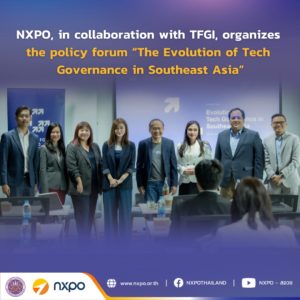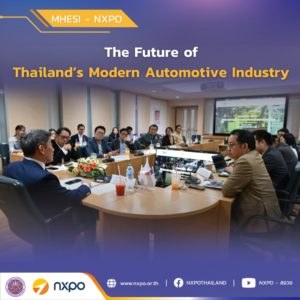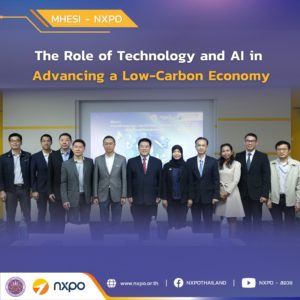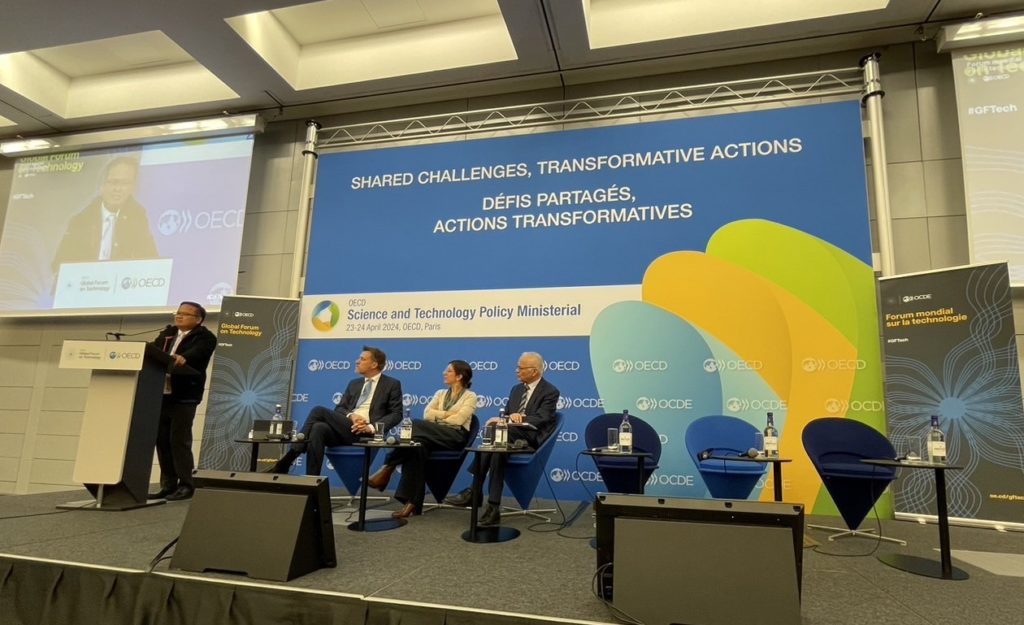
NXPO President Dr. Kitipong Promwong participated in the Global Forum on Technology (GFTech). Hosted by the Organisation for Economic Co-operation and Development (OECD) on 22 April 2024 in Paris, France, the forum was held under the theme “Building our Biofuture: Policy issues and opportunities for next generation biotechnologies”. Dr. Kitipong was featured as an invited speaker in the session focusing on policy perspectives on emerging technology, alongside Mr. Ulrik Vestergaard Knudsen, OECD Deputy Secretary-General; Ms. Aisén Etcheverry Escudero, Minister of Science, Technology, Knowledge and Innovation of Chile, and Mr. Mohammed Belhocine, Commissioner for Education, Science, Technology and Innovation of the African Union Commission.
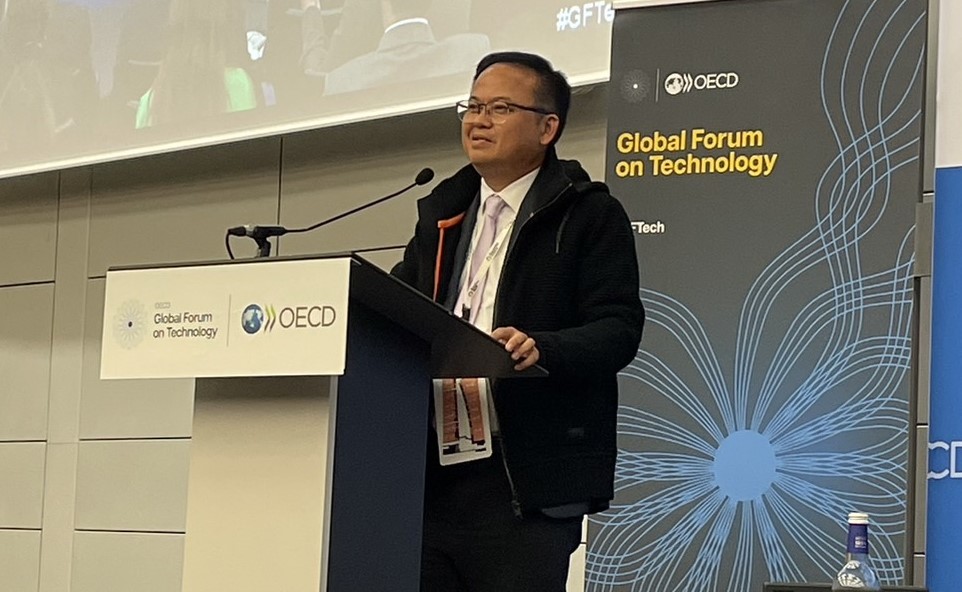
During his presentation, Dr. Kitipong emphasized the importance of modern biotechnology which will have a significant impact on the food industry, Thailand’s vital sector. To capitalize on this trend, the Thai government has promoted investment in Biocomplex projects across several provinces, in connection with its core policies on the Bio-Circular-Green Economy (BCG) model and the New S-Curve Industry. Modern biotechnology is instrumental in driving the growth of the future food sector by redefining the cassava and sugar cane industry, shifting from low-value starch production to high-value products such as functional food and functional ingredients, medical food, and alternative proteins.
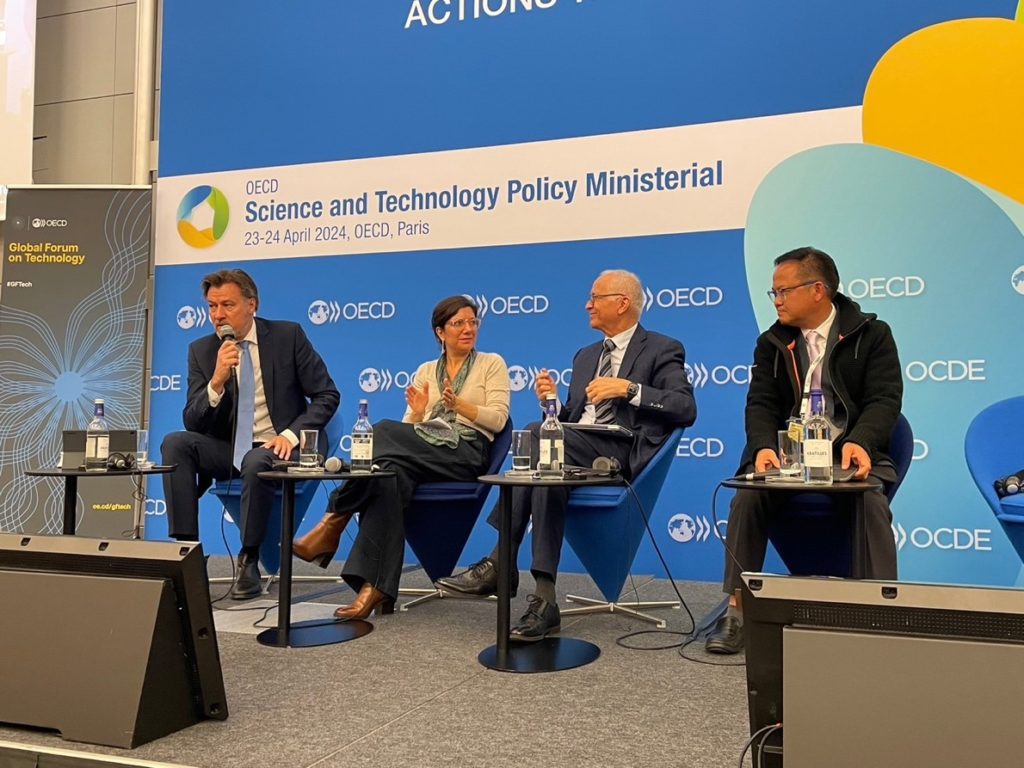
Dr. Kitipong also discussed Thailand’s policy framework which places a strong emphasis on fostering innovation capacity among SMEs and nurturing human resources through the sandbox program, which helps upskill workforces through short courses co-created with enterprises to meet industry demands. The program is currently joned by 70 companies. Building capabilities in modern biotechnology hinges on international cooperation to foster mutual understanding and shape a shared future.
Another Thai speaker at the forum was Mr. Kittiphong Limsuwannarot, President and Chief Executive Officer of BBGI Public Company Limited. He contributed to the session on sustainable production, highlighting Thailand’s endeavors in cultivating an enabling ecosystem. These efforts encompass substantial investments in contract development and manufacturing organizations (CDMOs) which have attracted numerous industrial partners, as well as investment promotion measures and scale-up infrastructure to bolster the transition from research to market.
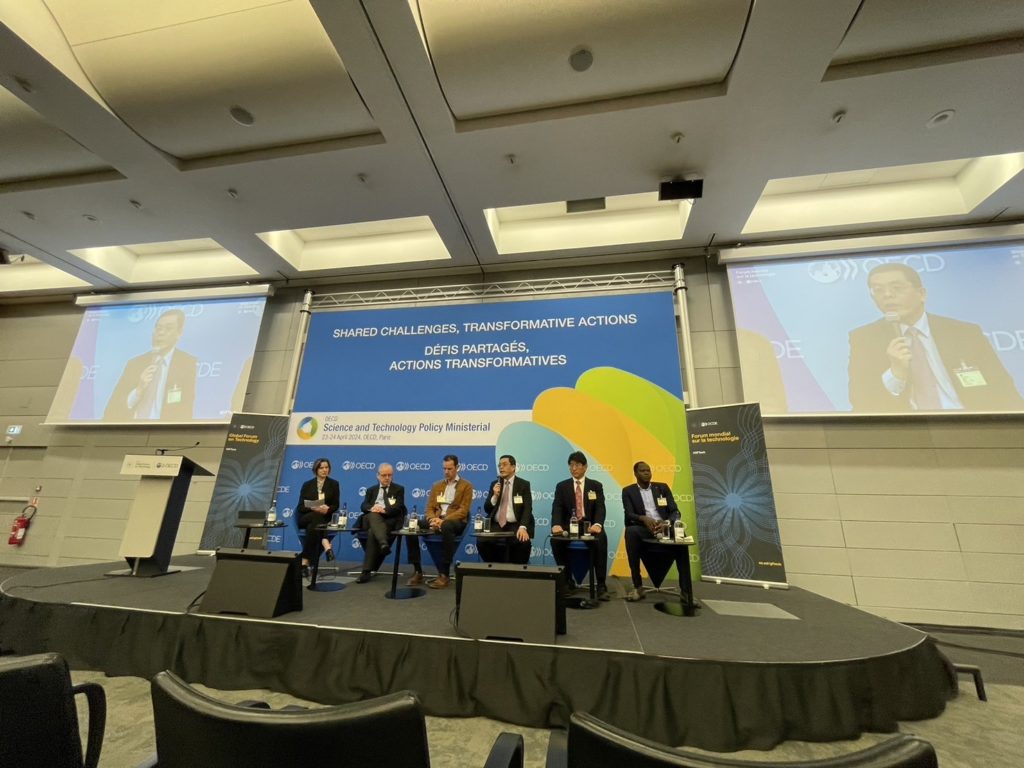
The forum also featured sessions addressing other important topics such as health innovation, agrifood and environmental resilience, and governance and responsible innovation. Key technologies highlighted during the forum included synthetic biology, gene drives, and cultivated meat. Experts from research institutions and startups worldwide advocated for international collaboration and government policies to foster access to and development of modern biotechnology. This entails ensuring equitable access to technology, enhancing capacity in data and AI to facilitate biotechnology platform development, investing in biosafety assessment infrastructure, and deregulating startups. As modern biotechnology promises significant impacts across industries from pharmaceuticals and food, to energy and the environment, it is imperative to raise public awareness and participation on its benefits, and promote responsible innovation and ethical use of such technology.
Future editions of GFTech are expected to continue facilitating discussions on international cooperation to drive modern biotechnology forward.


